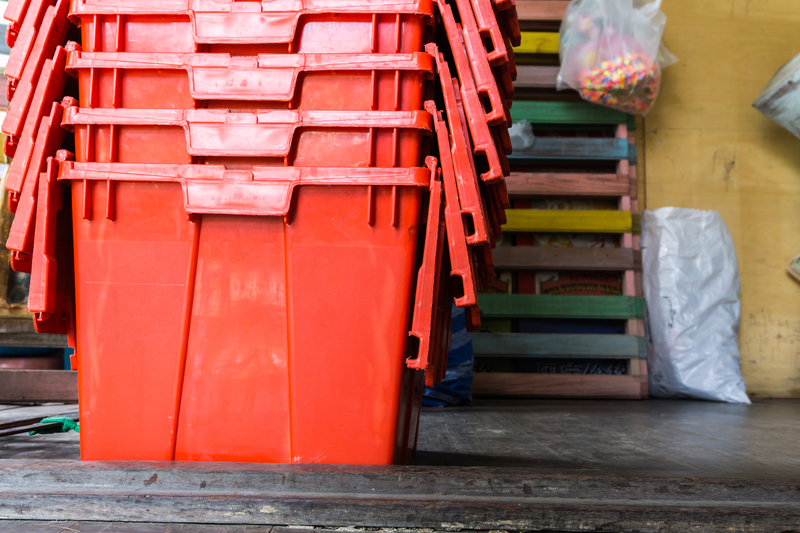Professional Solutions for Piano Relocation
Posted on 22/06/2025
Professional Solutions for Piano Relocation
Moving a piano is not just about physical strength; it's an art that requires expertise, precision, and special equipment. If you're searching for reliable ways to relocate your prized musical instrument, you need to consider professional solutions for piano relocation. In this comprehensive guide, we explore everything you need to know about moving your piano safely and efficiently, ensuring it remains in pristine condition.

Why Should You Trust Experts with Piano Moving?
Pianos are more than just furniture. They are intricate, delicate instruments, often with significant sentimental and financial value. Standard moving companies may lack the specialized knowledge and tools for such a complex task. Below are the main reasons to opt for professional piano relocation services:
- Expert Handling: Piano movers are trained to understand the delicate inner workings of pianos and know how to protect both internal mechanisms and external finishes.
- Specialized Equipment: Relocation experts arrive equipped with dollies, ramps, skid boards, padding, and straps designed specifically for pianos.
- Risk Management: Professionals carry insurance and take full responsibility for the safety of your instrument throughout the process.
- Custom Solutions: Whether you have a grand piano, baby grand, upright, or digital piano, professionals tailor their approach to meet your instrument's specific needs.
- Safety: Preventing injury to both people and the instrument is paramount, especially given the weight and size of many pianos.
Types of Pianos and Their Moving Requirements
Pianos come in various styles and sizes, each requiring special considerations for safe relocation:
Upright Pianos
Upright pianos are tall, vertical instruments that are often found in homes, schools, and small studios. While they may seem simpler to move due to their compact size, their weight distribution can make them awkward and susceptible to tipping.
Grand and Baby Grand Pianos
Grand pianos and baby grands are much larger, with their long frames and wide lids. Their intricate structure demands careful partial disassembly and reassembly, especially when navigating tight hallways or staircases.
Digital Pianos
Even though digital pianos are lighter, their electronics and fragile keys can easily sustain damage if not handled with care.
Key Factors in Choosing a Professional Piano Relocation Service
How do you select the right team for your valuable instrument? Here are some components to look for in a piano moving service:
- Experience: Choose movers with an established reputation in piano relocation.
- Proper Licensing and Insurance: Protect your investment in case of accidents.
- Custom Equipment: Ask about specific tools and methods used for different types of pianos.
- Customer Reviews: Positive testimonials reflect quality service and customer satisfaction.
- Cost Transparency: A reliable company will provide a detailed quote and explain what it covers.
The Piano Relocation Process Explained
Understanding the multi-step process helps you appreciate why professional solutions for piano relocation are crucial:
1. Assessment and Preparation
Movers first assess the instrument's size, weight, and structure, as well as your home's layout. This includes measuring doors, hallways, and staircases to plan the safest route. The piano is then cleared of any loose items (such as sheet music) and protected with soft padding and sturdy wraps.
2. Disassembly and Secure Handling
For grand or baby grand pianos, professionals may need to remove legs, pedals, or the lyre. Each piece is carefully wrapped and labeled. Using specialized dollies and ramps, movers lift and transport the instrument out of your property with maximum care.
3. Transportation
The piano is loaded onto a climate-controlled truck, secured in place with straps to prevent any jostling. Experienced drivers maneuver carefully to further minimize potential damage.
4. Delivery and Setup
Upon arrival, your instrument is gently unloaded, reassembled if necessary, and placed exactly where you want it in your new location. Movers ensure the piano is level and stable, and provide tips for acclimatization and post-move tuning.
Benefits of Professional Piano Relocation Solutions
Using experts for piano transfer and moving offers numerous advantages:
- Peace of Mind: Rest assured your valuable asset is in capable hands.
- Time Savings: The process is streamlined and efficient, freeing you to focus on other aspects of your move.
- Damage Prevention: Specialized packing and transport eliminate most risks of scratches, warping, or mechanical issues.
- Insurance Protection: In rare cases of mishap, your investment is covered.
- Expertise: Movers offer advice on care, cleaning, and post-move adjustments.
Risks of DIY Piano Moving
While you might be tempted to save money by moving your piano yourself, attempting a DIY relocation often results in:
- Injury: Pianos can weigh from 300 up to 1200+ pounds, leading to risk of serious injury without proper training and equipment.
- Irreversible Damage: Even minor bumps can cause expensive internal or external harm that affects playability and value.
- Property Damage: Walls, floors, and doorways can easily be damaged when handling such a heavy, awkward load.
- Lack of Insurance: With no protection, the costs of repair or replacement fall solely on you.
How Are Pianos Moved Long Distances or Overseas?
For long-distance or international piano relocation, professionals provide bespoke services that may include:
- Custom Crating: Each piano is placed in a made-to-measure wooden crate for added protection during transit and handling.
- Climate Control: Maintaining optimal temperature and humidity to prevent tuning issues, warping, or sticking keys.
- Tracking and Coordination: The entire process is tracked and coordinated with specialized carriers for safety and peace of mind.
- Customs Documentation: Assistance with all necessary paperwork and regulations for international moves.
Tips for Preparing Your Piano for Relocation
Help ensure a hassle-free process with these simple steps before the movers arrive:
- Remove Decorative Items: Take off all sheet music, metronomes, or lamps.
- Secure the Lid and Keyboard Cover: Ensure they are closed to prevent damage to the keys or strings.
- Communicate with Movers: Point out any fragile areas, unique history, or existing damage so care can be taken during the move.
- Prepare the Destination Room: Clear a pathway and decide ahead of time exactly where the piano will go.
Main Keyword Variations for Better SEO
Throughout this article, we've emphasized different ways to reference the main subject, including:
- Professional piano moving services
- Piano shifting solutions
- Expert piano relocation teams
- Piano transportation specialists
- Piano transfer professionals
Cost of Professional Piano Moving Services
The price of hiring piano movers will vary depending on several important factors:
- Piano type and weight: Grand pianos cost more to move than uprights.
- Move distance: Local moves are less expensive than cross-country or international moves.
- Staircases or obstacles: Extra labor and tools add to the total cost if stairs or narrow hallways are involved.
- Disassembly and reassembly: For some pianos, these services are charged separately.
- Special requirements: Hoists, cranes, or custom crates may incur additional fees.
Always request a clear quote to avoid hidden costs and ensure you receive high-quality service.

Frequently Asked Questions About Professional Piano Relocation
How far in advance should I book a piano mover?
Book piano moving services at least two weeks in advance, especially during peak moving seasons. This helps ensure availability and allows for any special arrangements.
Do I need to tune my piano after moving?
Yes. Even with the utmost care, pianos usually need retuning after relocation, as the movement and change in environment (humidity, temperature) can affect their sound.
Can any moving company transport a piano?
No, not all movers are equipped to handle pianos. Always check for experience, proper equipment, and insurance before trusting a company with your instrument.
What should I do if my piano is damaged during the move?
Contact the moving company immediately and document any visible or functional issues. Professional piano relocation companies carry insurance and should address claims promptly.
How long does it take to move a piano?
The duration varies based on the piano's size, your location, and complexity, but most moves are completed within a few hours. Long-distance moves will naturally take longer.
Conclusion: Invest in Specialist Solutions for Piano Relocation
Whether you are moving across town or overseas, professional solutions for piano relocation are essential to safeguard your valuable instrument. With customized equipment, extensive experience, and a passion for precision, specialist piano movers ensure your piano's journey is smooth, secure, and stress-free.
Don't take chances--entrust your treasured piano to experts who understand the unique demands of piano moving. The right team will preserve your instrument's beauty, sound, and value for years to come.
Latest Posts
Declutter Like a Pro Before Changing Homes
Professional Solutions for Piano Relocation
Guidelines for Storing a Freezer That's Turned Off



